Search the Special Collections and Archives Portal
Search Results

Transcript of interview with Judge Abbi Silver by Barbara Tabach, January 10, 2017
Date
Archival Collection
Description
It is evident that a keen wit and persistent tenaciousness to protect victims of crime have earned Judge Abbi Silver the reputation that elevated her to her current position as Chief Judge of the Nevada Court of Appeals. She is the first female to hold this position. Judge Silver is a lifelong resident of southern Nevada. She was raised in Boulder City, where her family was the only Jewish family at the time. Her father was a doctor and eventually the family moved into Las Vegas, where she graduated from Clark High School and then University of Nevada, Las Vegas (1986). Always an overachiever, she worked multiple jobs?waitress, Utah Jazz cheerleader, dancer?while earning her undergraduate degree and then her law degree from Southwestern University of Law, in Los Angles (1989). In this oral history, Judge Silver recalls being a law clerk for Honorable Earle White, Jr., joining the Clark County District Attorney?s Office and being assigned as the Chief Deputy DA for the Special Victims
Text

Transcript of interview with Jacqueline Baskow by Barbara Tabach, October 24, 2016
Date
Archival Collection
Description
In 1976, Jacqueline "Jaki" Baskow was an aspiring actress when she and a friend accepted an invitation to worked in a movie studio in Las Vegas. She had three-hundred dollars to her name, a dream and lots of dynamic energy. Though the movie studio offer did not quite materialized as she hoped - the invitation had come from Batman co-creator Bob Kane - Jaki's trajectory into Las Vegas, working with talents and planning events became an over forty year career. In this interview, she talks about growing up Jewish in Camden, New Jersey where her father was a murder victim; her tenacious effort to find the perpetrator included the help of celebrity detective Joe Schillaci. She shares stories of the colorful array of A-list entertainers she has worked with to build her successful business, Baskow and Associates. She has built a niche of handling large corporate events, hiring talent and attention to details for exciting events. She reflects on the people and moments that impelled her on; mentors such as Bobby Morris and Frank Sinatra and Jilly Rizzo.
Text
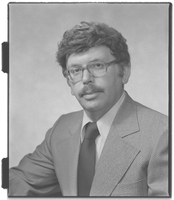
Photograph of Cantor Bergman, August 07, 1979
Date
Archival Collection
Description
A portrait photograph of Cantor Bergman. 120mm negative.
Image
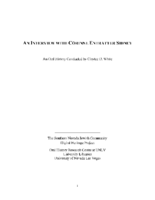
Transcript of interview with Corinne Entratter Sidney by Claytee White, June 5, 2007
Date
Archival Collection
Description
Interview with Corinne Entratter Sidney by Claytee White on June 5, 2007. In this interview, Sidney talks about growing up with privilege in California, where her father served as the attorney general. She attended school at UCLA and took acting classes and signed with United Artists. She met Jack Entratter in Los Angeles and moved to Las Vegas and worked as a Copa Girl. She discusses Jack Entratter's generosity and influence in town, and his style, and their lifestyle together. She mentions the likes of Frank Sinatra, Lena Horne and Sammy Davis, Jr. and her extravagant life living at the Sands. After Jack's death in 1971, she moved back to Los Angeles, returned to acting, and wrote a newspaper column. On a visit to Las Vegas with George Sidney after Sidney's wife Jane died, Corinne and George began dating and were married shortly after. They moved back to Las Vegas together for a slower pace. She describes her love of Las Vegas and its continued growth.
Corinne Sidney's life story makes for fascinating reading. She was born in 1937, the daughter of Alice Polk, former Ziegfeld showgirl, and Carl Kegley, an attorney. She attended U. of C. Berkeley, transferred to UCLA, and was spotted by a talent scout who convinced her to enter a Miss USA contest. Corinne's runner-up status in the Miss USA contest led to job offers in acting, so she decided to study acting. This, along with her childhood lessons in ballet, piano, singing, tap dance and horseback riding, led to a contract with United Artists, freelance work, television parts, and plays. Around the age of 18, Corinne met Jack Entratter. Their relationship brought her to Las Vegas, where she worked as a showgirl at the Sands for a few months, and where she married Jack a few years later. They lived a fabulous lifestyle which included travel, beautiful homes, and friendships with noted celebrities. Corinne went back to acting in Los Angeles after Jack passed away, but then segued into writing a gossip column and hosting a television show. She reconnected with an old friend (George Sidney) by writing the obituary for his wife, and within a few months they were married. The Sidney's moved back to Las Vegas, where Corinne still makes her home today.
Text
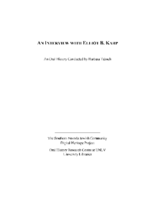
Transcript of interview with Elliot B. Karp by Barbara Tabach, December 17, 2014
Date
Archival Collection
Description
Interview with Elliot B. Karp by Barbara Tabach on December 17, 2014. In this interview, Elliot Karp discusses growing up in a culturally Jewish household in New York and becoming more observant in his teenage and college years. He decided, after a trip to Israel and a year in a rabbinical program, that he wanted to be a "Jewish professional" with a focus on social work and community organizing, and attended a Master's program at Brandeis University. Karp goes on to talk about his work for the Jewish Federation in Ohio and Pennsylvania, and being recruited to come to Las Vegas. He talks about the challenges in the Las Vegas Jewish community and the Jewish Federation's role as an umbrella organization to partner with other agencies to grow and sustain a robust Jewish community in Southern Nevada.
On October 6, 1955, Elliot Karp was born in Mineola, New York to parents of East European heritage who identified as culturally Jewish. As a teenager, Elliot felt the calling to become kosher, balancing this practice with household norms that were not as strict. He eventually became shomer Shabbat just after enrolling at State University of New York at Stony Brook, where he majored in Political Science. After graduating from SUNY, Elliot spent a year living in Israel considering a path in rabbinical studies. By the end of his time, he decided on a different, yet related path, and registered as a graduate student in Brandeis University's School of Jewish Communal Service, on fellowship from Council of Jewish Federations. After graduating, Elliot moved to Columbus, Ohio to work for the Jewish Federation, focusing on fundraising, but was exposed to many different operational areas of the organization. After three years, Elliot was recruited to the Philadelphia office as its director of leadership development. He then left the Federation to work in development at Brandeis University, but after two years, returned to the Federation as the Cincinnati office's chief development officer. In 2008, Elliot received a call to take his highly cultivated leadership and fundraising skills to another Federation office: Las Vegas. After much consideration, he took the job - and challenge - as the office's new chief executive officer. Since then, Elliot has done much to promote communication, coordination and collaboration within the local Jewish community and beyond, through relationship building and successful fundraising efforts. His ultimate desire is to expand funding for programs that get more people involved in Jewish life - while also empowering community members define what a Jewish life means for them.
Text
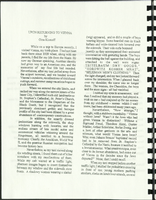
Compilation of writings from the Holocaust Survivors' Group, circa 1998
Date
Archival Collection
Description
Bound compilation of four issues of the Holocaust Survivors' Group essays and poems.
Text

Transcript of interview with Joshua Abbey by Barbara Tabach, June 6, 2016
Date
Archival Collection
Description
Joshua Nathaniel Abbey was born in 1956 to artist Rita Deanin Abbey and author Edward Abbey. While much of Joshua?s early childhood was spent in the southwest following his father?s job, Hoboken, New Jersey, was where he attended elementary school and where his Jewish foundation took shape with his maternal grandparents. In 1964, the Abbey family moved westward again to Las Vegas. Though his father moved on and became a distant influence on Joshua?s life, his mother, Rita, remained and became an artist and art instructor at UNLV. Upon graduating from Las Vegas? Valley High School, Joshua set his sights on an acting career. His creative and industrious energies would inspire him to move about: from Los Angeles to New York and back to Las Vegas. He traveled the world, met the love of his life Yve Eiholzer-Abbey, a fellow Thespian. Eventually the couple made Las Vegas their permanent residence. In this interview, Josh recalls his life?s journey and the many career steps, friendships and accomplishments he has experienced along the path. Among Josh?s local contributions is the creation the Las Vegas Jewish Film Festival, which began in 2001. He also was founder of CineVegas Film Festival in 1998; a member of the Nevada Arts Council, City of Las Vegas Arts Commission and Director of the Desert Space Foundation, a local non-profit foundation committed to assisting emerging arts groups. He has also worked with Blue Man Group, for Jewish Family Service Agency, had a brief speaking part in the movie, The Natural, and been an activist opposing the Yucca Mountain waste repository-and much more. Joshua is a graduate of University of Nevada Las Vegas (Theater Arts 1980) and American Film Institute (1993).
Text
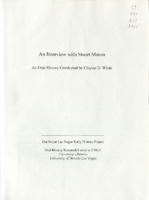
Transcript of interview with Stuart Mason by Claytee White, November 9, 2006
Date
Archival Collection
Description
In this interview, Stuart Mason discusses his family's construction business, Taylor Construction Co., and his involvement with building various Las Vegas Strip hotels including Caesars Palace and the Riviera, and remodeling the Flamingo. He talks about working within a "social contract" with the various unions, and other aspects of construction.
Stuart Mason was born in Columbus, Ohio, and moved with his family to Miami, Florida, when he was two years old. He received his bachelor's degree in business administration from the University of Miami in 1958. Shortly after graduation, he married his wife, Flora, and started working for Taylor International, the family business. He came to Las Vegas in 1964 to start work on Caesars Palace as the assistant project manager and eventually took over the management of the business. Mason has contributed greatly to the city of Las Vegas over the years through his contributions in the development and construction of the Las Vegas Strip and his commitment to the community. He and Flora started the Nevada Chapter of the Juvenile Diabetes Research Foundation in 1970. In addition, they made donations to the UNLV University Libraries to benefit the Undergraduate Peer Research Coaches program, which helps undergraduate students obtain their college degrees. In addition to his work on Caesars Palace, Mason worked on the original and new MGMs, The Rivera, The International, the Stratosphere, and the Desert Inn, along with remodeling work at the Flamingo. Other company projects can be found in Miami, Jamaica, Aruba, the Grand Bahamas, Melbourne and Puerto Rico. His two sons took over the family business in 1997, the same year that Mason started as the Vice President of Development for the Venetian Hotel Casino.
Text

Transcript of interview with Doris, Gerald and Marcy Welt by Barbara Tabach, November 30, 2014
Date
Archival Collection
Description
Interview with Doris, Gerald "Jerry", and Marcy Welt by Barbara Tabach on November 30, 2014. In this interview, the Welts discuss how they came to Las Vegas in the early 1970s from California, and Eli Welt's pawnshop, Stoney's, which he acquired from Doris's father, Jerry Fox. Jerry and Marcy talk about how they met and came to Las Vegas, where Jerry worked for Harry Reid's law firm. They talk about the community that existed in Las Vegas at the time, and their involvement with B'nai B'rith.
Just before the start of the Great Depression, Doris Fox was born in Detroit, Michigan. At the age of fifteen, she met Eli Welt, and the two were married three years later in Alexandria, Louisiana, where Eli was stationed with the United States Army Air Corps. Eventually, Doris and Eli moved to southern California with their three children-Gerald (aka Jerry), Richard (aka Rick) and Susan (aka Sue). In 1971, after all their children were out of the house, Doris and Eli moved to Las Vegas. They followed Doris' father, Jerry "Stoney" Fox, who had moved to the city in the 1940s, and was one of the first entrants into the local pawnshop industry. Like many migrants to the city, Eli became active in the Jewish community, particularly with B'nai Brith and Jewish Family Service Agency. Doris and Eli's eldest son, Jerry, and wife, Marcy, moved to Las Vegas in 1972 with their two small children. Tiffany and Cory. Jerry and Marcy had met through a Jewish youth group as teenagers in Anaheim, California. Having just finished law school, Jerry found that legal career opportunities were plentiful in the growing city. His first job was as a law clerk with Harry Reid's law office, Beckley, DeLanoy, Jemison and Reid, later becoming an associate attorney. He assisted Reid as lieutenant governor and on his early political campaigns. Jerry left Beckley, DeLanoy, Jemison and Reid to work for Oscar Goodman's firm-Goodman, Snyder and Gang-focusing on civil litigation. In 1975, Jerry opened his own practice, continuing to specialize in civil ligation, and served as general counsel to Las Vegas Clark County Library District. Since their arrival, Marcy and Jerry have been dedicated to community service, particularly within the Jewish community. Both were active in youth programs at Temple Beth Sholom, Jerry even serving as youth commissioner and later, education director. Marcy worked with Edythe Katz at the Holocaust Resource Center and assisted with producing a film and training program for educators. Both are avid supporters of youth travel to Israel and work hard to ensure these opportunities continue to be available for those interested.
Text
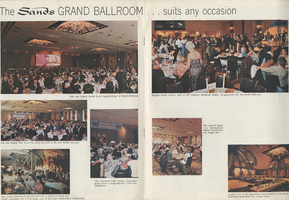
14th Anniversary Issue of the Sands Times from the Sands Hotel and Casino, December 1966
Date
Archival Collection
Description
The 14th anniversary issue of the Sands Times magazine from the Sands Hotel and Casino in Las Vegas, Nevada. Articles written in the magazine describe various events held at the Sands, entertainment news, and celebrity appearances.
Mixed Content
